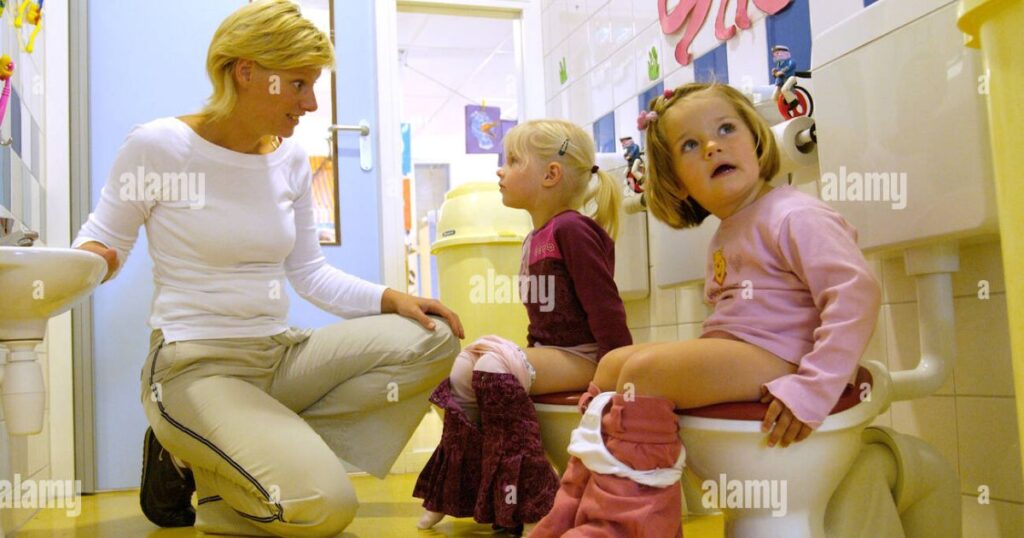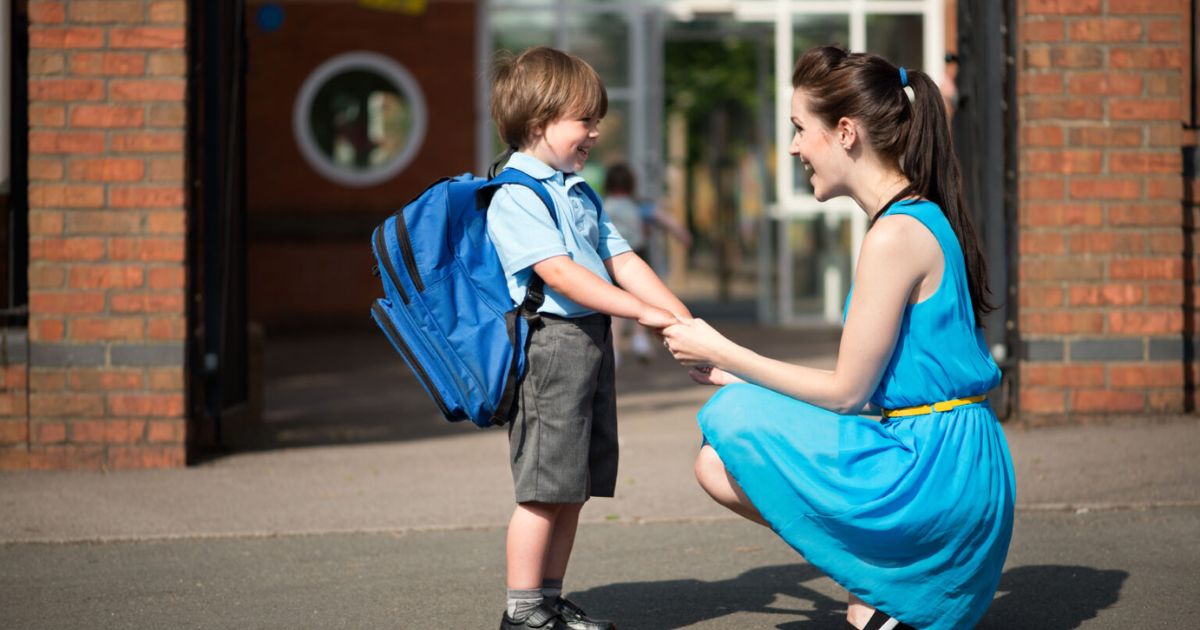Navigating the realm of early childhood education raises common questions, and one often asked is, “Can my child go to school if not potty trained?” Let’s delve into the considerations and guidelines surrounding this aspect of a child’s development.
Parents juggle numerous concerns as their child approaches the school-going age, and the potty training dilemma adds a layer of complexity. Discovering the nuances of school policies, developmental readiness, and potential exceptions is crucial for informed decision-making.
While many schools require basic potty training for enrollment, some exceptions exist, with special education programs often accommodating children still in the process. Communication with schools and understanding their specific policies is key in ensuring a smooth transition for your child.
School Enrollment and Potty Training

Enrolling your child in school raises questions about potty training readiness. For parents wondering, “Can my child go to school if not potty trained?” Most schools prefer children to be potty trained before starting, ensuring a smoother experience for both the child and teachers. This requirement helps create a more comfortable and hygienic environment for everyone in the classroom.
However, it’s essential to note that some schools may have flexibility or exceptions, especially in special education programs. Communicating openly with the school administration about your child’s specific needs and developmental stage can provide insights into available options. Understanding the school’s policies on potty training will guide you in making informed decisions regarding your child’s enrollment.
Navigating Early Childhood Education Policies
Enrolling your child in school brings questions about potty training policies. Most schools prefer children to be potty trained, but exceptions exist. It’s important to understand the specific requirements of your chosen school. Communication with teachers and administrators is crucial to ensure a smooth transition. Schools may offer support and flexibility for children still in the process of potty training.
Keep in mind that special education programs often accommodate unpotty trained children. It’s a good idea to explore these options if your child is still mastering this skill. Ultimately, understanding and adhering to the early childhood education policies of your selected school will contribute to a positive and successful start for your child.
Understanding Developmental Readiness for School
Ensuring your child is developmentally ready for school is crucial. It involves more than academic skills; consider their social and emotional readiness too. Children who can follow basic instructions, interact with peers, and express needs are often better prepared for a positive school experience.
Look for signs of readiness, like an interest in learning, curiosity, and the ability to engage in simple tasks. Independence in self-care, like dressing and using the restroom, is also a positive indicator. Every child develops differently, so observe their unique strengths and areas needing support. Assessing developmental readiness comprehensively contributes to a smoother transition to the school environment.
Potty Training Challenges in School Transition
Transitioning to school presents potty training challenges for parents. Many schools prefer children to be potty trained before enrollment. It can be a stressful time as parents navigate their child’s readiness for this developmental milestone.
Some children may still be in the process of mastering potty training when they start school. This creates concerns about accidents and potential embarrassment. Understanding a school’s policies and discussing any concerns with teachers can help ease this transition. Effective communication ensures that parents and schools work together to support the child’s developmental journey during this significant step in their education.
School Policies on Potty Training Requirements
Schools often require children to be potty trained before enrollment. This is because managing bathroom needs independently is considered an essential skill for young students. It ensures a smoother experience for both the child and teachers, fostering a more focused and comfortable learning environment.
While some schools might be flexible and understanding of developmental variations, it’s crucial for parents to inquire about specific potty training policies during the enrollment process. Clear communication with the school staff helps address any concerns and allows for a collaborative approach in supporting the child’s transition to a school setting.
Exceptional Cases: Enrolling Unpotty Trained Children
In some situations, schools make exceptions for enrolling children who are not yet fully potty trained. These cases often involve special education programs that recognize and accommodate children with diverse developmental needs. Schools may work closely with parents to create individualized plans, fostering a supportive environment for the child’s unique requirements.
It’s essential for parents in such situations to communicate openly with school administrators. Discussing the child’s progress in potty training, outlining any ongoing strategies, and understanding the school’s policies on accommodating exceptional cases ensures a smoother transition. Collaboration between parents and schools can lead to a more inclusive and supportive educational experience for children who may require additional attention in their developmental journey.
Effective Communication with Schools about Potty Training
Establishing clear communication with schools regarding your child’s potty training status is vital for a smooth experience. Begin by reviewing the school’s policies on potty training and enrollment. If uncertain, reach out to school staff, such as teachers or administrators, to discuss any concerns or inquire about possible accommodations. As a side note, some might wonder, “Can horses be potty trained?” – a different but interesting question that highlights the diverse nature of animal behavior.
Share relevant information about your child’s progress and any ongoing support they may need. Keep an open line of communication to address any challenges or adjustments required during the transition. Effective dialogue ensures that both you and the school are well-prepared to support your child’s development, creating a positive environment for their early education journey.
FAQs
Can my child attend school if they are not potty trained?
Generally, schools prefer potty-trained children, but some may make exceptions. Check with the specific school for their policies.
What if my child is in the process of potty training?
Many schools understand this and may work with you. Communicate with the school about your child’s progress and any assistance needed.
Are there exceptions for children with special needs?
Yes, special education programs often accommodate children still in the process of potty training. Contact the school to discuss individual circumstances.
How can I find out a school’s potty training requirements?
Review the school’s enrollment policies or contact school staff, such as teachers or administrators, to understand their specific potty training expectations.
What should I do if my child encounters challenges in potty training at school?
Maintain open communication with the school. Discuss any issues or adjustments needed, ensuring a collaborative approach to support your child’s successful transition.
Conclusion
Navigating the question of whether a child can attend school if not potty trained involves understanding individual school policies, engaging in effective communication, and recognizing potential exceptions. Tailoring approaches to the child’s needs ensures a smoother transition into early education.
In this exploration, we’ve uncovered the importance of dialogue with schools, acknowledging developmental nuances, and being aware of exceptions in specific cases. The journey of sending an unpotty trained child to school requires collaboration between parents and educational institutions, fostering an environment that nurtures a child’s growth.










